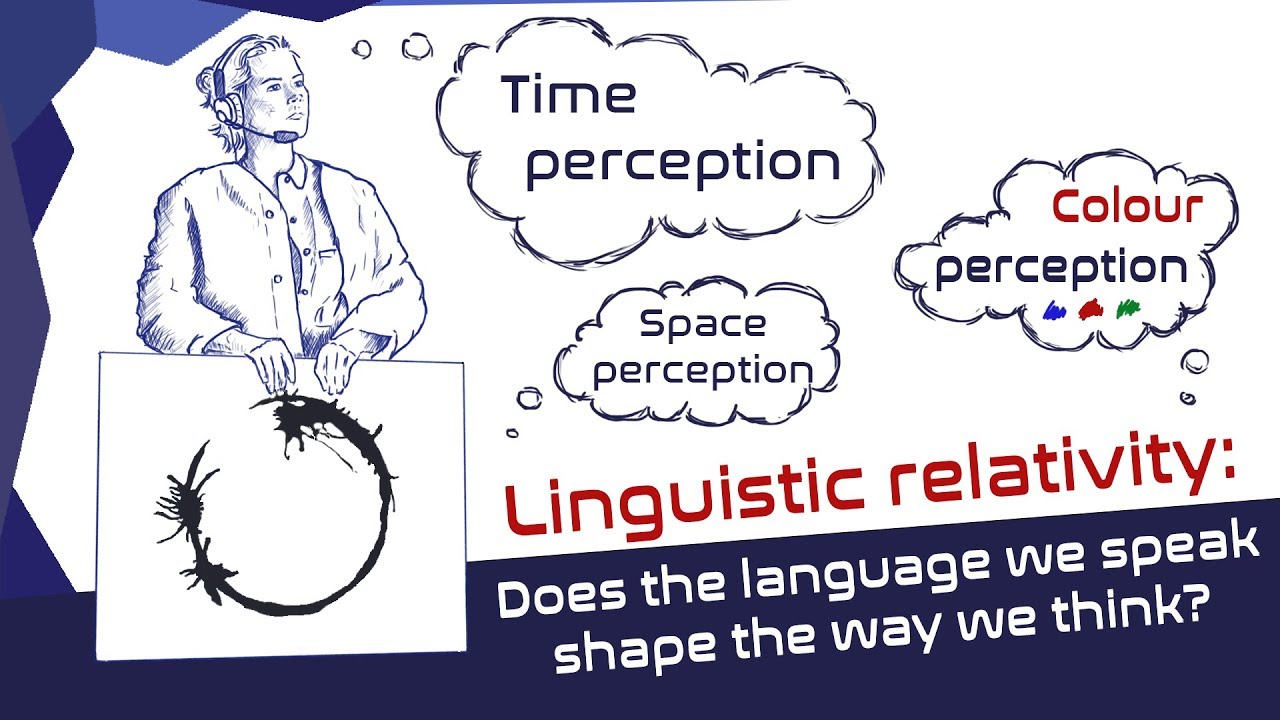LUSCID [your user-friendly guide to Science]
Have you ever wondered if the language we speak shapes the way we think?
This question has lately been raised by the Oscar winning movie Arrival. This video examines the scientific research on the linguistic relativity hypothesis (a.k.a. the Sapir-Whorf hypothesis) and presents the perspectives of psychologists, linguists and cognitive scientists on the topic.
Since that’s the first video we’ve made it would be great if you leave feedback. Share with us in the comments below if you’d like to see another video with more research on this topic. If you liked the video give it thumbs up, share it with friends and don’t forget to SUBSCRIBE to our channel: http://bit.ly/2oBn4bL
We put new videos every month!
In this video:
1. The Sapir-Whorf hypothesis 0:17
2. The strong version (linguistic determinism) vs the weak version (linguistic relativity) 1:31
3. Linguistic determinism in science fiction. Arrival movie 2:11
4. Why the strong hypothesis has been abandoned in the academic field? 2:50
5. Experiment on color perception – blue color spectrum in Russian language – syniy/ goluboy 3:52
6. Perception of space – the Kuuk Thaayorre speakers 5:05
7. Experiments on time perception – do Mandarin and English speakers think about time in different ways? 7:07
FACEBOOK: https://www.facebook.com/luscid/
TWITTER: https://twitter.com/LuscidChannel
Research and script: Irina Georgieva and Nikoleta Staneva
Art, editing and narration: Daniel Stamenov
Music: Acoustic Breeze – Bensound.com
Sources:
[1] Effects of language on colour discrimination
http://www.pnas.org/content/104/19/7780.full
[2] Kuuk Thaayorre speakers’ concepts of Space and Time
https://www.ncbi.nlm.nih.gov/pmc/articles/PMC3428806/
[3] Mandarin and English speakers’ concepts of Time
http://logic.amu.edu.pl/images/7/7e/Socjo_Boroditsky.pdf
[4] http://cs.um.ac.ir/images/87/books/Cognitive%20Psychology_Strenberg%206th%20.pdf
[5] http://pubman.mpdl.mpg.de/pubman/item/escidoc:2309347:3/component/escidoc:2309346/Carroll_1963_Linguistic_relat%20.pdf
[6] http://onlinelibrary.wiley.com/doi/10.1002/9781118611463.wbielsi086/abstract
[7] http://www.academypublication.com/issues/past/tpls/vol02/03/30.pdf
[8] https://www.edge.org/conversation/lera_boroditsky-how-does-our-language-shape-the-way-we-think
[9] http://www.abc.net.au/radionational/programs/allinthemind/how-language-shapes-thought/4329212#transcript
Source




Well done.
great video !
Speak. Slower. Dammit. Thank you.
Very very interesting!
Ironic that a vid about languages is so hard to understand. Im sorry mate. Im sure you had a lot to say. But I couldn't understand you. Captions would have been nice.
I guess that narrator is also the reason you’ve only got 100 likes from the thousands of people who watched this….
I’m so grateful I’ve found this research, the topic fascinates me and there’s not much information online, but It’s extremely difficult to focus on the plot because of the absence of any pause or intonation. Is there any chance you could remake the video with a better narration? Thank you
would love another video on this topic. it was explained beautifully in this video.
Hi, I really like what you're trying to do here but you should seriously consider a speaker whose voice is more readily understood by the average viewer. No offense, I like the animations and the ideas, just can't understand you very well.
I just discovered your channel and I have to say that I find it great! This video is well structured, well paced, comprehensible while still covering the subject in depth. Also the captions and the time table in the description are a really nice touch, a nice attention to details. I'm definitely gonna check your other videos.
How about non human languages? Certain cetaceans and birds have been recognised to employ their own "languages" and dialects. What research has been done on this?
I just checked out this video and I kinda have my own experience to share. I speak 7 different languages and when I speak in each of them, I look and describe the world a little bit differently, it is really interesting to observe. For example, when I speak Russian I am more conservative and when in English more open minded, while neither is my native language. It is not a huge difference, of course, but it is very interesting to observe how some things seem to make more sense in one language or the other.
Why not add deep links in your desciption with the time code for each section for instance
1:08 Sapir-Whorf Hypothesis. Just write in the time code and when you hit save it will generate a deep link.
Ah … 😉
“Darmok and Jalad at Tanagra. Shaka, when the walls fell."
I think this is deep and good.
Wittgenstein would get it.
I'm not sure I get it. How is this a linguistic thing and not just a cultural thing?
And for the record, there is are words for light blue and dark blue in English like the Russian example. Cyan and Indigo, respectively. Because English has so many different loan words and influences from other languages, we eventually just started calling everything blue, forgot cyan existed, and started using Indigo to mean purple.
Hello!!! Great channel and interesting videos you have. Congrats!!! I subscribe to your channel. Please subscribe to my channel ,and lets support each other and be friend ,have a good day
I found it a little difficult to understand at times, I'm not very good with accents. Could I recommend adding the option for captions? (The auto-generated ones are never accurate)
Great work, guys. Food for thought. I don't know about that topic, but I'd like to see you discuss another one, for sure! Great research, too. :))
Ayyyy let's go
great graphics and interesting topic! Subscribed!